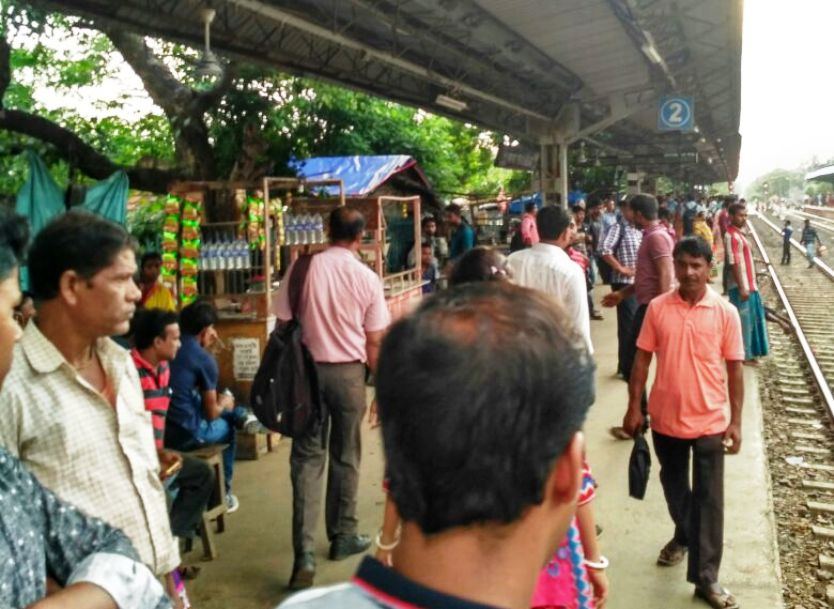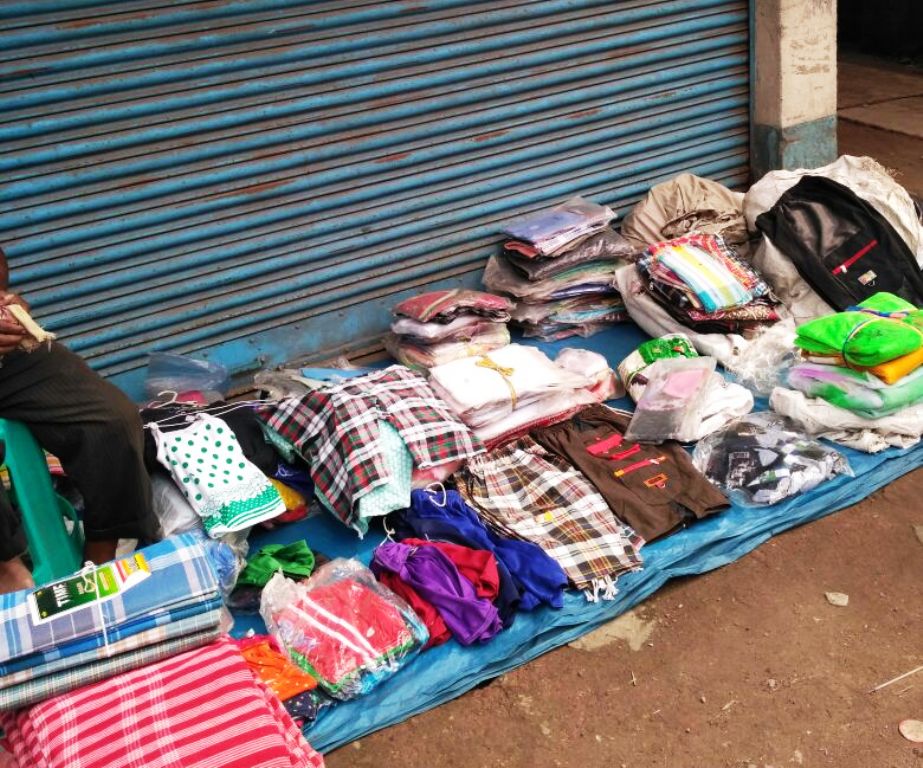A month after riots, Basirhat residents still counting losses

By Mirza Mosaraf Hossain, TwoCircles.net
Over the past one month, Basirhat has been at the centre, and then the sidelines, of both the national and the local media for mostly wrong reasons. In early July, the town erupted in communal clashes following an objectionable Facebook post. It must also be added that during the last three weeks, there have been several communal harmony programs held in the area and while things are getting back to normal, for a section of its residents the losses incurred might never be recovered.
[caption id="attachment_414707" align="aligncenter" width="834"]
normal life of the people of Basirhat prevails[/caption]
The worst impact of the riot was on the poorest of the poor living in the locality, who are mostly engaged with small business in the heart of the town. From tea sellers to the barber of Basirhat, everyone expects not to experience such kind of chaos created by the last month’s communal tension which shattered their day-to-day means of livelihood.
Though almost a month has passed since tensions were at its peak, the routine of the daily lives of small-time business continues to suffer and the losses incurred continue to hurt them.
Calling last month’s tension as “communal propaganda between two different political groups,” Ramesh Mondal, a 43-year-old tea seller near the Marriage Registration office of Basirhat, said, “Here in Basirhat, the problem lies not with religion but with those who are in a kind of challenge to prove ‘who is mightier’ in every aspect of political connotation. We, the common men are to suffer their test by losing our means of livelihood.” He added, “Before last month's unwanted chaos, I used to earn 250 to 300 per day by selling tea. But now, it's very hard to earn 50 a day as people hardly come out in the evening. The mess has made it much harder to run my family of four members and provide expenditures of my two daughters for their studies who are in their matriculation.”
[caption id="attachment_414708" align="aligncenter" width="923"] Sanjay Halder's footpath shop of clothes[/caption]
Sanjay Halder's footpath shop of clothes[/caption]
The situation of Mondal is similar to that of Sanjay Halder, a 47-year-old who sells clothes in the footpath of Basirhat town. Repenting his losses for the riot, he said, “I had to stop selling clothes in the footpath for more than ten days after the riot. This disastrous incident has deeply affected my family of five members, as now I hardly earn Rs 300 a day compared with Rs 800-Rs 1,000 a day earlier. “People from the interior villages are coming lesser in number to town-based markets due to fear. There are no other means for me to earn left. Where will I go for work in this age?”
Another person who runs an E-Rickshaw from Basirhat Railway station to the heart of the town and refused to be named for any inevitable problem, said, “This is the first time for me in my 29-year life that I am witnessing such a pathetic situation which people of Basirhat are going through now. Though the atmosphere seems to be normal, I cannot earn 200 a day whereas I used to earn 500 a day before the riot took place. During the riots, I could not work and our family barely survived without any income for seven days. I could not even get a job as a daily labourer as landowners refused to till their lands for this incident.”
Even shops that were not burnt, or broken, suffered losses of income. Take the example of Trimohini road market of Basirhat, a colony of a mixed population of both Hindus and Muslims. Here. all shops, salons, hotels and even shops of cobblers remained closed for more than one week in utter fear of life and disruption of properties what less they have. They did not get courage enough to open their shops as they used to earlier in a daily basis, and thereby lost a sizebale amount.
Responding to the aftermath of losses that last month’s chaos brought out to the local small scale businessmen, Md. Fahad Gazi, a hotel owner situated at the forefront of Trimohini Road colony, said, “ this single incident destroyed the very basis of day to day life at our colony. Though it has been one month after the riot took place, people hardly come out now as they used to do earlier." He added, "I have five employees in this hotel with a contract of 150 a day. But they all went to their homes to the interiors of the district because of fear of their life. As they are from very poor family, how will they manage their families now?”
Romen Das, 53, runs a cycle repairing shop in Basirhat and travels 15 km everyday to run his shop. “My family of six members is solely dependent on this cycle repairing shop. Everything was going on smoothly until this riot broke out. I earned Rs 800-Rs 1,000 in a single day, now it has been reduced to only Rs 250-Rs 300. It's very difficult for me to run my family with this income and provide expenditures of my two sons who are studying." He further said it will take a time to normalise the situation that the devastating riot brought to our life. “Until and unless the atmosphere of Basirhat turns calm and quiet and everything becomes normal, poor people like us have to suffer for that,” he added.
